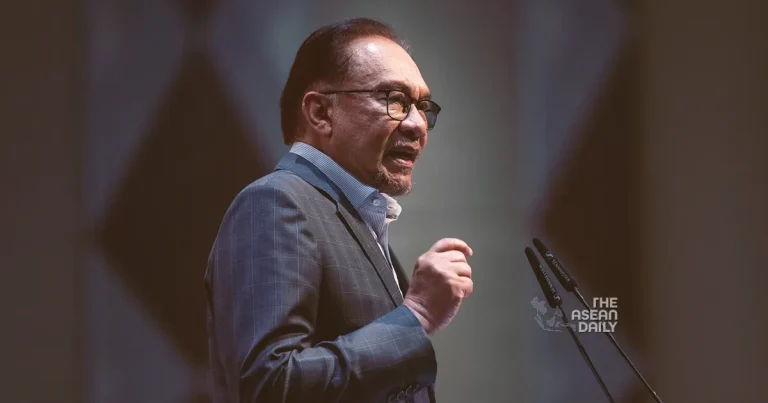2-2-2024 (KUALA LUMPUR) In a move that has stirred political discourse across Malaysia, the jailed former Prime Minister Najib Razak has been granted a partial pardon, a decision that experts believe favours the current Prime Minister, Anwar Ibrahim, and his diverse coalition government.
The Pardons Board, chaired by Malaysia’s king, announced on Feb 2 that Najib’s 12-year sentence for corruption related to the 1Malaysia Development Berhad (1MDB) scandal would be halved to six years. Additionally, his hefty fine of RM210 million (US$44.5 million) has been reduced to RM50 million.
While Najib, aged 70, is set to be released on Aug 23, 2028, failure to pay the reduced fine would extend his sentence by an additional year, delaying his release until Aug 23, 2029.
The decision, reached during a Jan 29 board meeting, came amid speculation and conflicting reports regarding Najib’s fate, with initial suggestions of a full pardon later proven incorrect.
The move towards a partial pardon is viewed as a compromise that seeks to appease the divergent factions within Anwar’s unity government, namely the Pakatan Harapan (PH) coalition and the United Malays National Organisation (UMNO) of the Barisan Nasional (BN) coalition.
Najib’s influence within UMNO, particularly among its supporters, remains significant. The party had previously advocated for a full pardon, a move that risked straining its alliance with PH, especially as Anwar has been vocal about combating corruption within Malaysia’s elite circles.
Dr. Ong Kian Ming, Director of the Philosophy Politics and Economics Programme at Taylor’s University, believes that the reduction in Najib’s sentence provides some breathing space for PH, avoiding the need to justify a full pardon to the public, many of whom were mobilized by PH’s anti-corruption stance during the 2018 General Election.
The partial pardon offers UMNO a semblance of vindication within the unity government, assuaging the concerns of Najib’s staunch supporters while maintaining the delicate balance of power.
Senior fellow at the Nusantara Academy for Strategic Research, Azmi Hassan, views Najib’s partial pardon as a strategic move orchestrated by Anwar to consolidate support within UMNO, particularly among leaders like Ahmad Zahid Hamidi, UMNO’s current president and Deputy Prime Minister in Anwar’s Cabinet.
Anwar’s involvement in the Pardons Board meeting last December, though initially seen as unusual, may have contributed to this decision, bolstering his position within UMNO and ensuring stability within the unity government.
Looking ahead, Najib’s potential return to UMNO leadership, contingent upon Ahmad Zahid’s replacement, could reshape Malaysia’s political landscape in the run-up to the next general election, due by 2028.
However, Najib’s eligibility to contest the election remains uncertain, given his previous conviction and ongoing legal battles related to the 1MDB scandal. While a full pardon would clear the path for his candidacy, a partial pardon leaves several legal hurdles unresolved.
In the meantime, the decision to grant Najib a partial pardon underscores the intricate dynamics within Malaysia’s political sphere, where alliances are forged and reshaped in pursuit of power and stability. As Najib navigates his path back into the political arena, Malaysia braces for further shifts in its ever-evolving political landscape.




